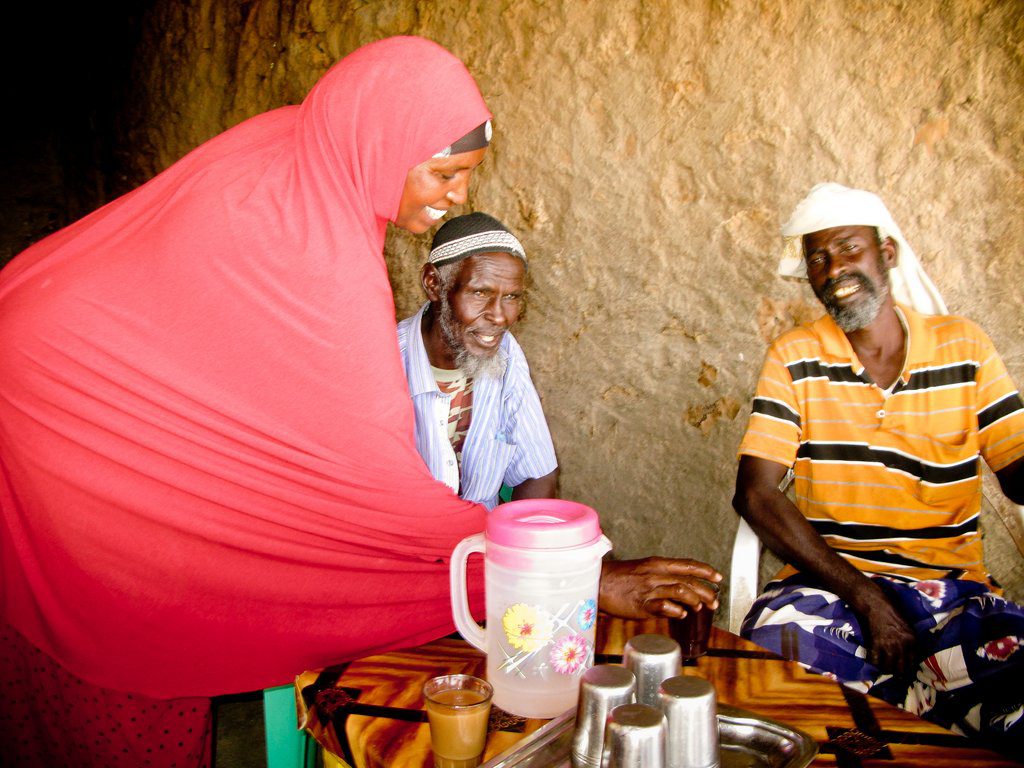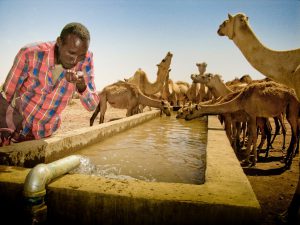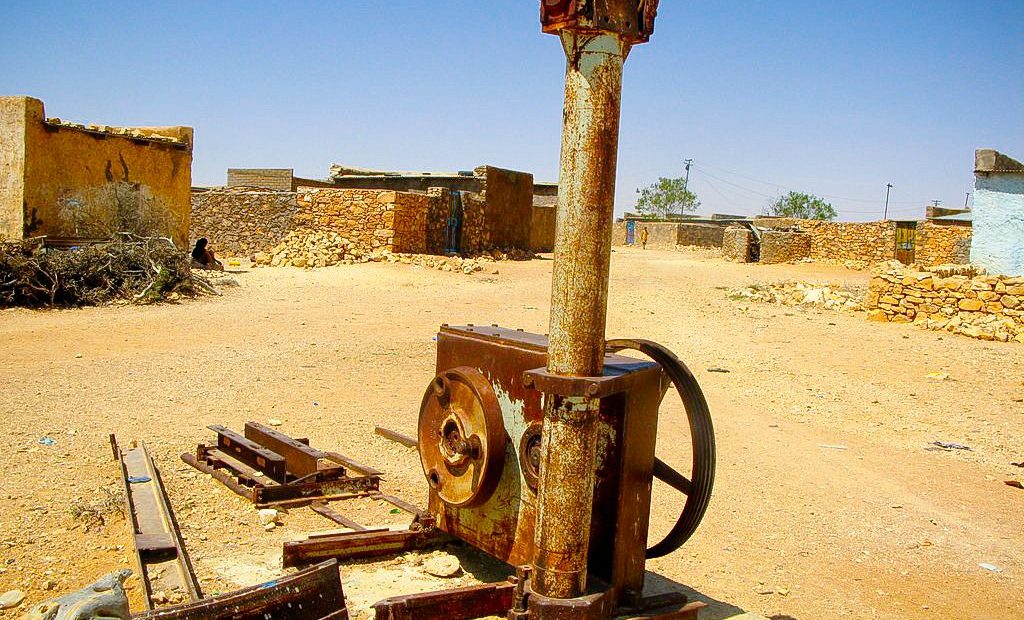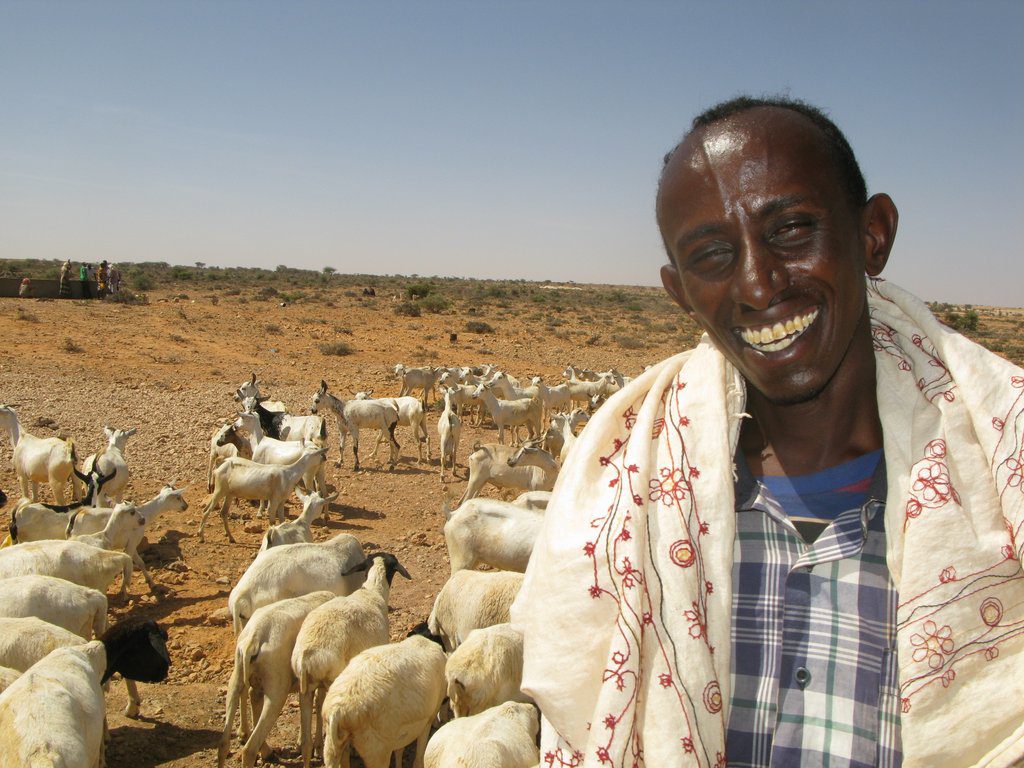An old and rusty water pump lies in the middle of Hidda village. It hasn’t been used in years except by birds that nest there. This state of ruin is symbolic of the deteriorated water infrastructure here due to years of conflict and neglect. Fortunately, a borehole nearby dug last year serves the water needs of the 2,000 people living in this village in Puntland, northern Somalia.
Before the borehole, water was scarce, especially during the dry seasons, when residents would be forced to buy 50 litres of water for $1, an unaffordable price for many families here. Those who couldn’t buy water would trek up to ten kilometers to the nearest water source.
Conflict ruins infrastructure
“Prolonged conflict usually disrupts the provision of crucial services like water, and fragile populations like pastoralists and their livestock are usually the first victims,” says Fernando Resta, the Water and Habitat coordinator for ICRC Somalia. “Combined with extended periods of droughts and other harsh climatic conditions, the effects can be dire.”
One of the worst droughts to hit Somalia was between 2009 and 2011, affecting 1.5 million people. Hundreds of thousands of lives and livestock were lost due to the disaster.
At that time, Fowsiya Mohamed, a mother of nine, was left with no choice but to move her family from Bossaso to Hidda in search of fresh pasture and water for her goats, the family’s only source of income. But drought had already dried up the water resources in Hidda and she was faced with a harsh dilemma. More than 20 rainwater catchments previously used in the Puntland region stopped functioning due to poor upkeep.
The scarcity of water meant she could no longer keep her goats and camels healthy enough to sell at a good price.
“Weak animals are impossible to sell and often die,” says Fowsiya while pouring tea from a steaming colorful flask for an elder. She sold most of her livestock in the local market and used the money to open a restaurant, which she says she has been able to manage comfortably.

Fowsiya Mohamed serves tea to patrons in her open-air restaurant in Hidda, Puntland, Somalia. ©ICRC/Miraj Mohamud
Water for both humans and animals
Recognizing that the village faced a severe water shortage, an ICRC team visited the region to see what could be done. Fernando Resta, said that after speaking with community elders a joint decision was made to drill a borehole.
Access to clean drinking water in the many arid parts of Somalia is a major challenge for communities. The ICRC sees the rehabilitation of water points as a vital way to help populations overcome the effects of the country’s evolving conflict, adverse climatic conditions and the restricted movement of traders due to the deteriorating security situation.
 In 2015, the ICRC completed the borehole in Hidda. It drilled three more in Somalia’s northern Puntland region, and the positive impact has already been felt by the residents.
In 2015, the ICRC completed the borehole in Hidda. It drilled three more in Somalia’s northern Puntland region, and the positive impact has already been felt by the residents.
Fowsiya says that the increased availability of water has allowed her to invest more funds in her restaurant since she no longer has to buy it. In related good news, she has sent her first-born son to a well-known university in Garowe.
Ibrahim Osman, a local herder, is hopeful that the economic situation will improve. “As we have more water here and I don’t pay for it, I decided to buy more animals to increase my livestock. My goats are now healthy,” says Ibrahim, who has come to the borehole to water his goats.
Livestock — mainly camels — play an important role in the national economy of Somalia. Data from the Food and Agriculture Organization shows the country exported 4.9 million goats and sheep, 295,000 cattle and 72,000 camels last year, contributing to 40% of the country’s GDP.
Helping the region’s water needs
Since 2015, the ICRC through construction and rehabilitation of boreholes has assisted 240,000 people in Somalia to gain access to safe and clean water in regions where water structures were non-existent, not maintained or destroyed during conflict.
Globally, ICRC works to facilitate access to safe water in countries where water structures and services were dilapidated or destroyed by war and conflicts. In Syria for instance, 16 million people were provided with safe clean drinking water while 400,000 in South Sudan were connected to safe drinking water.



